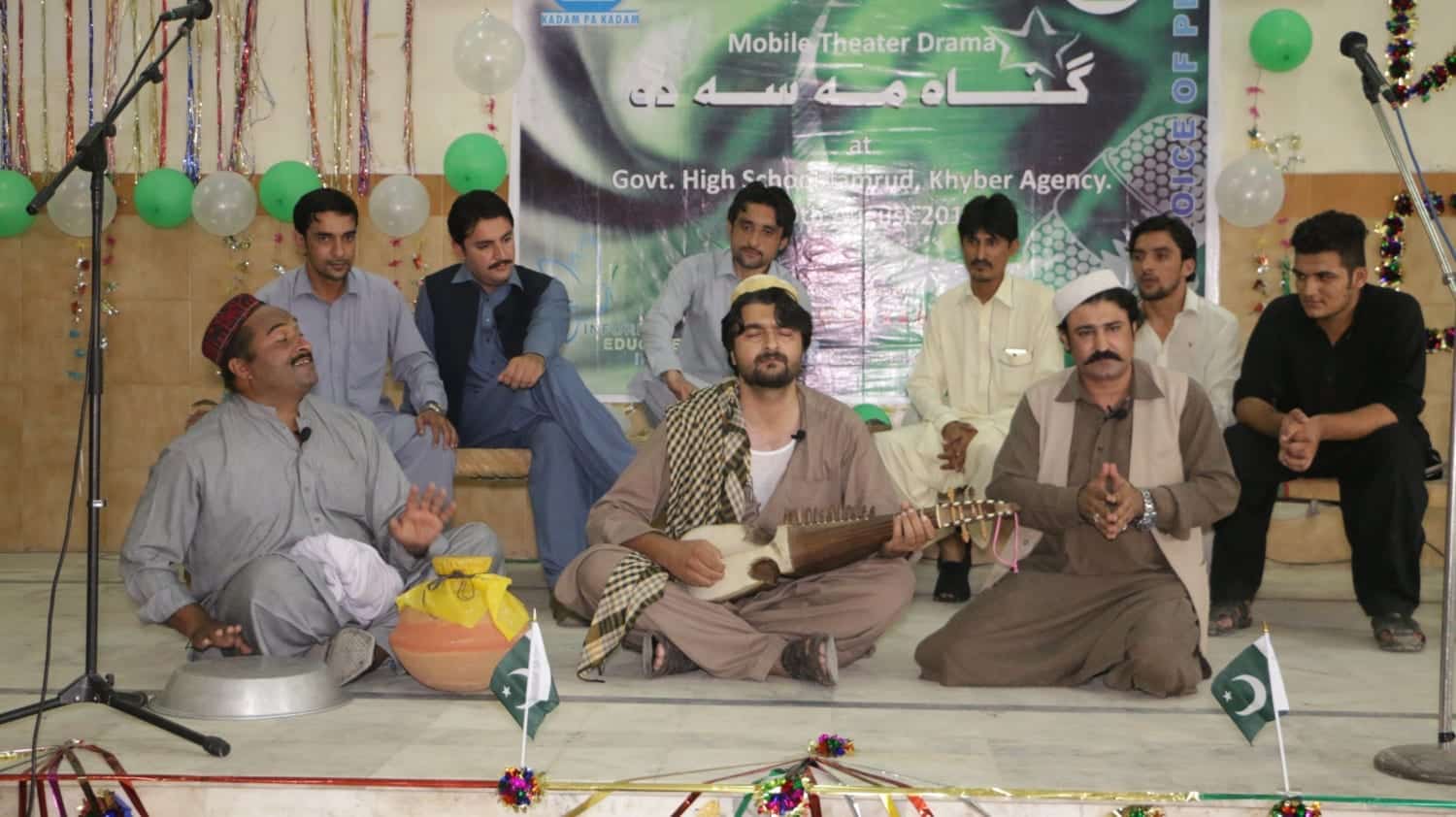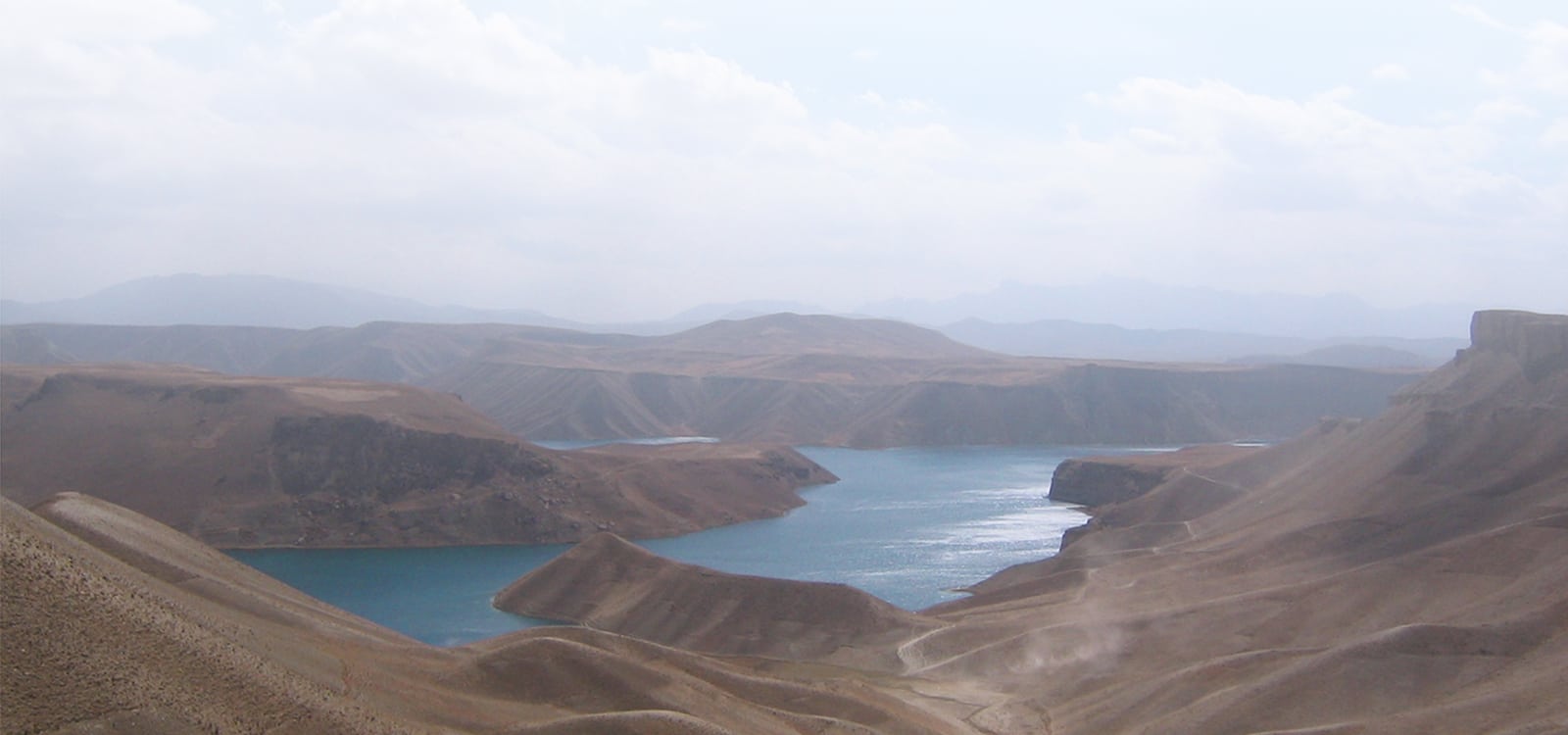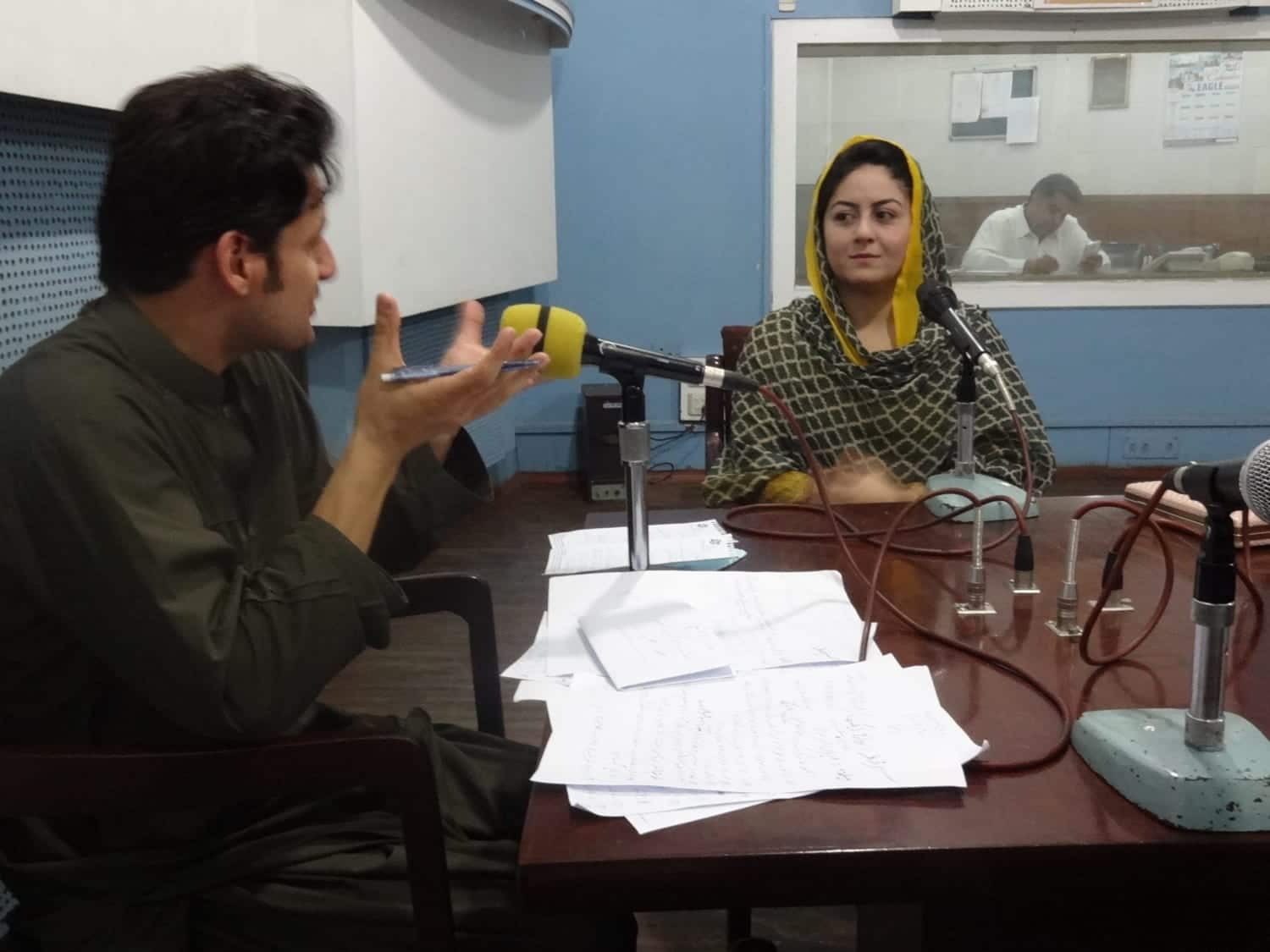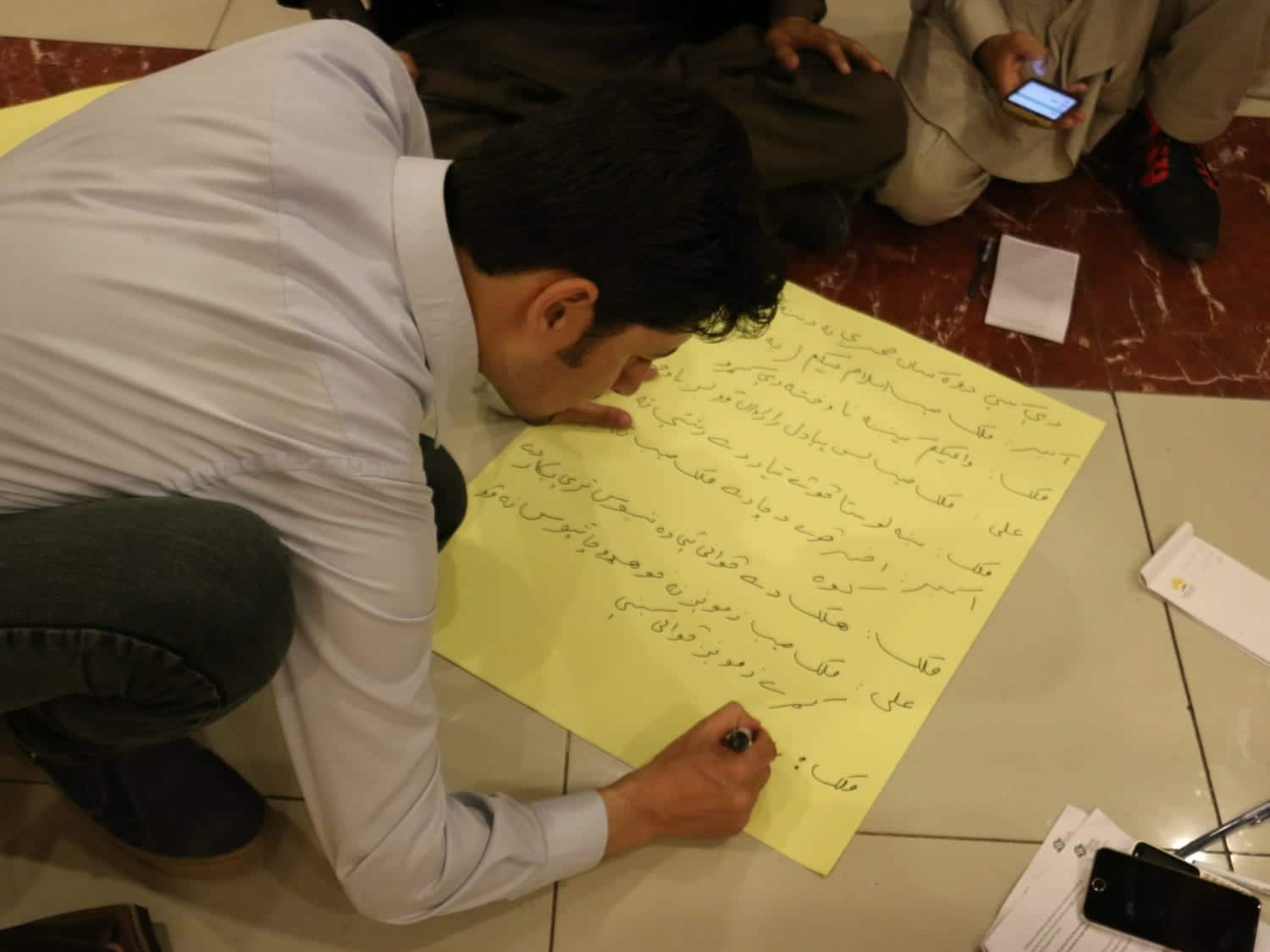

Furthering FATA Reforms (FFR)
The Furthering FATA Reforms and civic engagement project was implemented between 2014-2017 to inform, educate, and actively engage citizens of Federally Administrated Tribal Areas (FATA) on the region’s reforms.
A Project of —
Pakistan

One of our villagers – 65 years – was arrested under the collective responsibility clause of Frontier crime regulation (FCR). A century old draconian law in the Federally Administered Trible Areas (FATA). The local government official refused the request of tribal elders to release the old man. On the same day, I listened to the radio program “Kadam Pa Kadam” on FM 101 that was about the changes in collective responsibility in FATA reforms. Then, I consulted with the facilitator of EAI’s listener club in Bajawar agency and learn more about the new changes in collective responsibility. After having sufficient information on the new change in collective responsibility, I went to the political administration office and told them that according to the amendments in FCR, nobody has the right to arrest someone over 65 or under 16 about Collective Responsibility. Our local administration was luckily convinced by my reasoning and they released the elderly person on the spot.”
– Malik Shamshi Khan, 33 years member of Kaimoor Listener Club Bajaur Agency
The “Furthering FATA Reforms” (FFR) project was a 39 -month, innovative media initiative, complemented by community engagement activities aimed at broadening the knowledge of communities in the Federally Administrated Tribal Areas (FATA) on the administrative reforms that affected their regions. The project included the development of original, credible broadcast radio content on FATA reforms in local Pashto dialects, coupled with the youth engagement in civic activities in these at-risk regions. At the same time, the project promoted the development of reform-minded community leaders in the areas that have been most affected by militancy and extremism.


PROJECT ACTIVITIES:
The primary objectives of the project were to increase widespread public understanding and knowledge of the FATA reforms, and how these changes impacted the democratic process, rule of law, and the citizens’ fundamental freedom while encouraging citizen participation in the political process.
By designing and implementing an innovative public education media campaign, complemented by multiple outreach activities, the project increased public awareness and encouraged greater citizen participation in the political process.
- EAI produced and broadcast 148 Pashto-language radio episodes via the popular Kadam Pa Kadam (KPK or ‘Step by Step’) program on governance and reforms
- Engaged more than 5,800 youth directly in community engagement activities including mobile theater performances, hujra gatherings (traditional community centers of Pashtu-speaking people to resolve issues through collective efforts), sports gala and exposure visits.
- Facilitated more than 320 Listening and Discussion Group (LDG) meetings to increase the knowledge of 599 youth on the new reforms and to motivate civic activism in FATA.
- The project had a robust social media campaign and documentary production to promote knowledge and engagement on the FATA reforms.
Particularly important for EAI Pakistan was to turn the initiative into an inspiring platform for the motivation of youth from marginalized communities to share their stories. An example of this was the production of the documentary “Changing the Story,” which highlighted the struggle of three young people who tirelessly worked to defend the rights of their oppressed communities.
The project promoted civic engagement and participation at the grassroots level through collaborative dialogue and capacity building of youth. Several of the project’s participants continue to be change agents advocating for a just, tolerant and political vibrant community today.
Impact & Reach of this Project
1,300+
People attended Hujras.
33,000
virtual audience members have engaged with the project
80%
Survey respondents report a clearer understanding of how the FATA reforms will enable them to participate in the political process as a result of the program.
No words can describe my happiness and satisfaction at seeing local people at this Hujra gathering. Without a place in our village for us to sit together with our elders and youth to discuss different things, our issues and problems have grown and erupted into major fights... the efforts of EAI Pakistan are helping educate our youth on common issues and show how traditional events like Hujra can bring awareness of the FATA Reforms. I believe that through such meetings in the future, every person of this village will soon be more aware of FATA Reforms and other legal issues." Mr. Nadim Khattak Advocate
facilitator of Hujra gathering & Hujra Elder from FR Bannu